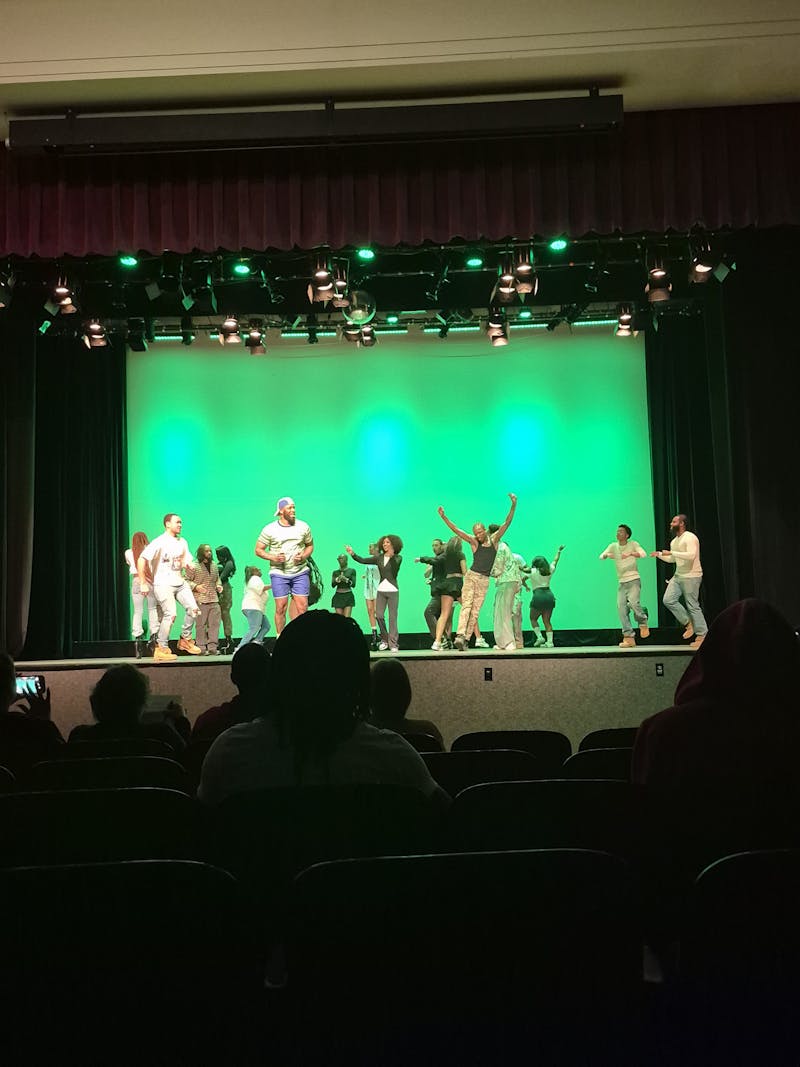Shippensburg hosted multiple speakers during the 2023 Diversity, Equity ad Inclusion summit at the CUB MPR, some of which advocated for unsolved issues that get overlooked due to ignorance. Most were renowned authors, presenters, and figureheads that pushed for important changes.
One of the authors was psychiatrist and professor Jonathan Metzl, who published “Dying of Whiteness,” which won the 2020 Robert F. Kennedy Human Rights Award. Metzl discussed his experience writing the book and his interactions with Americans he had to gain inspiration for his novel. According to his website the book “demonstrates the need for cooperation and diversity in a divided country.”
He explained that “political issues become our identities” and these social constructs stop us from making important legislative decisions that impact other groups. He cited topics like Medicaid and severely marginalized education in certain demographics.
Metzl said the most harmful structural American form of racism has been cutting funding for education and other important programs that benefit minorities. “The minute that the tax cuts hit, all the programs that directly helped them fell off the cliff.” Ensuring that tax money goes to the groups and the ability to use free speech to advocate for those that need it is key to evening the playing field.
Another impressive addition to the keynote roster was Conchita Hernandez Legorreta, an all around activist and teacher who currently works as the Maryland Blind and Low Vision Specialist.
Legorreta is a speaker dedicated to the rights of blind children in all levels of education, as well as how people with disabilities navigate through specifically higher education. She aims to stop the negative stigma surrounding those with disabilities, rather than being “something bad, something to support, something you need accommodations for. Instead, it should be seen through the lens of social justice, solidarity, support, equity, and disability justice.”
Stigmas like these are what Legorreta is determined to play a part in removing even how overlooked some issues are despite how many peoples’ day to day it affects. “One of the biggest barriers I’ve faced is other people’s attitudes.” She described everyday interactions she ensues as a blind person who crosses boundaries, such as microaggressions.
She wants higher education to begin creating disability cultural centers so students can “understand their power-demand better from your institutions.” Her priorities are set on the individuals, empowering disabled students to embrace themselves and push for better accessibility on all campuses.
The final keynote speaker that wrapped up the full DEI summit was acclaimed author, podcaster and free speech advocate that spoke at the MPR was Jacob Mchangama. Mchangama is the CEO of the Future of Free Speech Project and a research professor at Vanderbilt University. He promoted his book “Free Speech: A History from Socrates to Social Media.”
Mchangama has no shortage of free speech and human rights experience. He has been involved with multiple international media outlets, including The Economist, The Washington Post, BBC, CBS News, NPR, CNN, Foreign Affairs, Foreign Policy, The Wall Street Journal and Politico.
In his book, he tells about the importance free speech has had on American history and the effects it has on culture today. He acknowledges that free speech is a little different than it was back in the late 1700s, and how the concept of the marketplace of ideas does not exactly hold up in modern times. The marketplace of ideas is the concept that if everyone is speaking freely, truth will prevail, but Mchangama feels that “is fundamentally misguided.”
He does not believe the marketplace of ideas is the best justification of free speech, and how it can lead to some misinformation and disinformation in society. The modern-day marketplace of ideas at its best is social media and the ability to connect to others with technology to be able to “facilitate meaningful, deep and engaging debates” among others.
It is this privilege of free speech we have in America to be able to have speakers and important groups meant to fix and call out laziness and flaws institutions have that affect the lives of many. It is thanks to these speakers and so many more that people can have confidence that institutions are changing for the better rather than spiraling downhill.


The Slate welcomes thoughtful discussion on all of our stories, but please keep comments civil and on-topic. Read our full guidelines here.